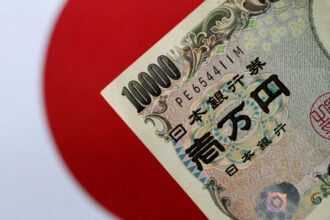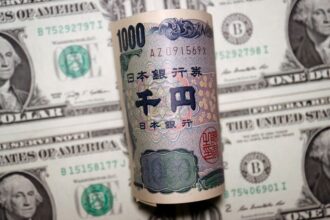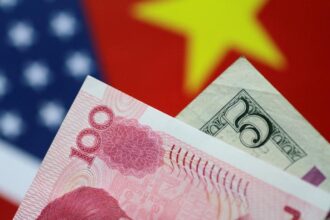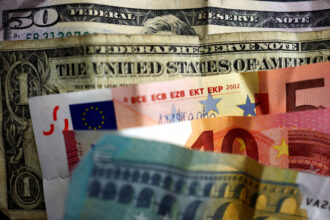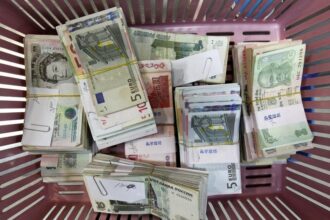By Karen Brettell
NEW YORK (Reuters) – The dollar gained on the euro and pared losses against the yen on Wednesday after Federal Reserve Chair Jerome Powell said that a rate cut in March was not the U.S. central bank’s “base case.”
It came after the Fed offered a neutral and less dovish outlook on rates than many investors had expected.
The Fed gave an “extremely neutral, non-committal statement”, said Karl Schamotta, chief market strategist at Corpay in Toronto.
The U.S. central bank left interest rates unchanged and dropped a longstanding reference to possible further hikes in borrowing costs. But it gave no hint that a rate cut was imminent.
“Traders thought that with the shift in the bias towards neutral that the Fed would accompany this pivot with dovish language. But the Fed did not. If anything, the Fed added some hawkish language in the text,” said Thierry Albert Wizman, global FX and rates strategist at Macquarie in New York.
Fed Chair Jerome Powell said in a press conference that the Fed would need to see more favorable data to be sure it was time to lower rates. “We do have confidence but we want to get greater confidence” that cooling inflation data was sending “a true signal”, he said.
The was last up 0.26% on the day at 103.66. It is on track for a 2.3% gain this month, the best month since September.
Traders are now pricing in a 38% probability that the Fed will cut rates in March, down from 59% earlier on Wednesday. It has fallen from 89% a month ago.
Investors are also focused on Friday’s U.S. jobs report for January, which is expected to show that employers added 180,000 jobs during the month.
The ADP National Employment Report showed on Wednesday that private payrolls increased by 107,000 jobs last month, fewer than economists’ expectations of 145,000 jobs.
The dollar has rebounded this year as U.S. economic data shows a still resilient economy and one that has a better outlook than comparable regions including the euro zone.
The euro fell 0.4% to $1.08005 and got as low as $1.07950, the lowest since Dec. 13. It is on pace for a 2.2% loss this month, the worst month since September.
Data earlier on Wednesday showed that German inflation eased slightly more than expected in January to 3.1%, helped by a drop in energy prices.
The dollar fell 0.25% to 147.26 yen. The Japanese currency has weakened due to the wide gap between U.S. and Japanese interest rates.
The greenback is on track for a 4.5% monthly gain against the yen, the largest since February last year, as weak wage data and cooling inflation leave room for the Bank of Japan to take its time raising rates.
Bank of Japan policymakers discussed in January the likelihood of a near-term exit from negative interest rates and scenarios for phasing out the bank’s massive stimulus program, a summary of opinions at the meeting showed on Wednesday.
The summary highlights a growing view within the board that conditions were falling in place to soon pull short-term interest rates out of negative territory, which would be Japan’s first interest rate hike since 2007.
Sterling fell 0.28% to $1.26630 before the Bank of England’s policy announcement on Thursday, where rates are also set to be unchanged.
In cryptocurrencies, bitcoin fell 1.57% to $42,864.
Read the full article here





